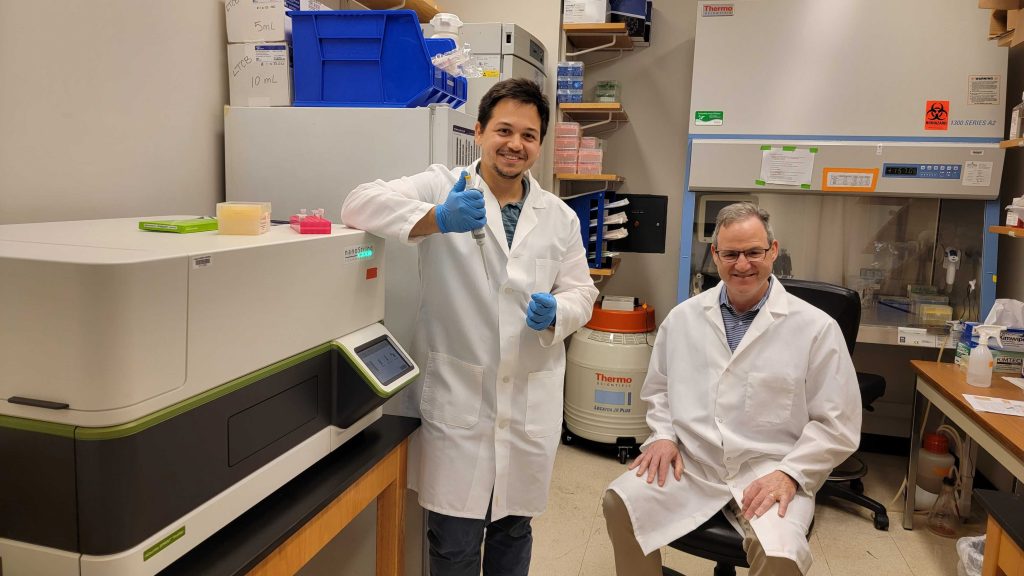Characterization and Modulation of microRNAs in Fragile X Syndrome

Principal Investigator
FRAXA Fellow
Atlanta, GA
Summary
Since the discovery of the first microRNA in 1993, microRNA-based therapeutics have become a hot topic in biology. Could microRNAs be a new path to treatment of Fragile X syndrome?
MicroRNAs are disrupted in Fragile X, and so this team will work to understand what is going wrong and explore ways to correct it.
The Science
Synapses are the site of communication between nerve cells in the brain. In order for synapses to function properly, there needs to be stop and go signals that control the synthesis of new proteins. In Fragile X syndrome there is excess and dysregulated protein synthesis through multiple mechanisms that alter synapse function.
How does FMRP, the protein missing in FXS, act as a brake on protein synthesis? FMRP partners with microRNA molecules, which are encoded by genes, but do not make their own protein the way an mRNA does. Rather, microRNAs are essential regulators of genes that do make proteins.
It is known that microRNAs are altered in Fragile X syndrome, but we do not yet know how they contribute to the disorder. We plan to characterize the different ways microRNA dysregulation contributes to Fragile X syndrome associated phenotypes. We will evaluate whether restoring altered microRNAs will stop excess protein synthesis and neuronal hyperexcitability from occurring in Fragile X cells. What we discover could point to new treatments to specifically target these alterations in microRNAs.
Meet the Scientist
Dr. Gary Bassell is a Professor in the Departments of Cell Biology and Neurology at Emory University School of Medicine in Atlanta, Georgia. His laboratory researches the critical functions of mRNA proteins and their role in neurodegenerative and development disorders. The Bassell Laboratory first received FRAXA funding in 2000 at Albert Einstein College of Medicine, where Dr. Bassell was previously a professor.
